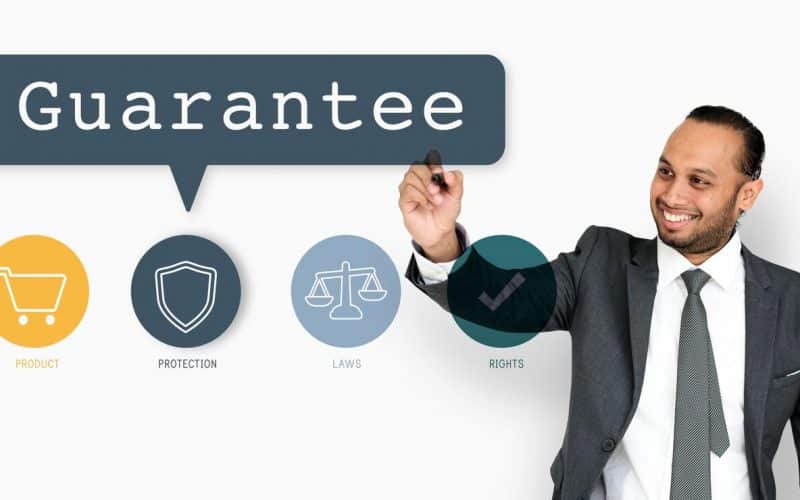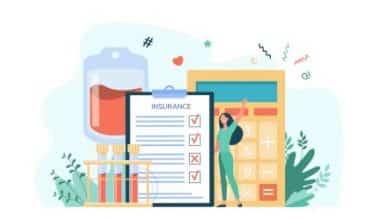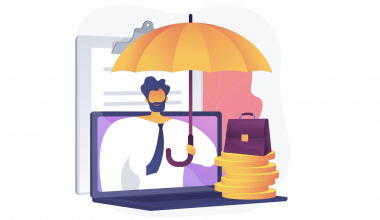We realize the need to safeguard ourselves and our assets from unanticipated events as responsible individuals and business owners. Liability insurance is an important component of this protection. Liability insurance protects us from any legal and financial consequences by acting as a shield. In this comprehensive blog post, we will delve into the world of liability insurance, exploring its coverage scope, and shedding light on what it covers in various contexts such as car, and business from State Farm in Texas. From car accidents to business operations, we will unravel the mysteries and benefits of liability insurance.
What Does Liability Insurance Cover on a Car?
In the case of automobiles, liability insurance is critical in protecting drivers and their financial well-being. This section will explain how liability insurance protects you in the event of a car accident or other incident.
Understanding Liability Coverage:
Liability insurance for cars primarily encompasses two types: bodily injury liability and property damage liability. Bodily injury liability covers the medical expenses, rehabilitation costs, and legal fees if you are at fault in an accident that causes injury to others. Property damage liability, on the other hand, covers the costs of repairing or replacing the property of others damaged in an accident you caused.
Bodily Injury Liability Coverage:
Bodily injury liability coverage assists in covering the injured party’s medical expenditures, pain and suffering, lost wages, and legal expenses. This coverage protects you financially if you or the driver of your car is deemed legally responsible for injuries caused in an accident.
Property Damage Liability Coverage:
Property damage liability coverage pays for the costs of repairing or replacing another person’s property that has been damaged in an accident caused by you or the driver of your vehicle. This can include damage to other vehicles, buildings, fences, or any other property affected in the accident.
Coverage Limits and Policy Considerations:
The limitations of liability insurance coverage vary based on the policy you purchase. When acquiring liability insurance for your car, it is critical to carefully analyze the coverage limits. Higher coverage limits provide more financial security but at a larger premium expense.
Exclusions and Exceptions:
While liability insurance covers a wide range of car accidents and occurrences, it’s crucial to note that there are some limitations and exclusions. Intentional acts or injuries caused by excluded drivers, for example, may not be covered. It is critical to review the policy specifics and discuss any specific issues with your insurance provider to have a full knowledge of the coverage.
What Does Liability Insurance Cover for a Business?
Liability insurance is an essential component of risk management for businesses. This section will look at what liability insurance for businesses covers, and the potential hazards it helps to reduce.
General Liability Insurance:
General liability insurance is the foundation of commercial liability coverage. It safeguards businesses against a variety of typical dangers, such as bodily injury, property damage, and personal injury claims. This coverage includes events that occur on business property or as a result of business operations.
Product Liability Insurance:
Product liability insurance is required for companies that manufacture or sell products. It covers claims resulting from injuries or damages caused by a faulty product. Product liability insurance protects firms from potential lawsuits and the financial constraints that come with them.
Professional Liability Insurance:
Professional liability insurance, commonly known as errors and omissions insurance (E&O), is essential for professionals who provide specialized services or advice. This coverage protects professionals against claims of negligence, errors, or omissions in the performance of their professional services. It provides financial protection and legal expenses if a client claims damages as a result of professional errors or blunders.
Employment Practices Liability Insurance:
Employment practices liability insurance (EPLI) covers organizations from employment-related lawsuits such as wrongful termination, discrimination, or harassment. EPLI coverage protects firms against potential employee lawsuits by covering legal defense costs and potential settlements.
Cyber Liability Insurance:
Cyber liability insurance is becoming increasingly vital in this digital age. It covers financial losses and legal expenditures incurred as a result of data breaches, cyber-attacks, or other cyber incidents. Cyber liability insurance assists firms in recovering from the financial and reputational damages caused by these occurrences.
What Does Liability Insurance Cover in Texas?
“Everything is bigger in Texas,” as the phrase goes, and so are the potential hazards that individuals and businesses face. This section will go over the particular issues and what liability insurance covers in Texas.
Texas Auto Liability Insurance Requirements:
Drivers in Texas are obliged to have auto liability insurance to cover any losses and injuries from car accidents. The state-mandated minimum liability coverage limits are 30/60/25, which means at least $30,000 in bodily injury per person, $60,000 in bodily injury per accident, and $25,000 in property damage per accident.
Business Liability Insurance Considerations in Texas:
Texas Business has specific risks and legal requirements. Businesses must examine the specific liability insurance coverage required to protect their activities. Depending on the nature of the business, this may include general liability insurance, professional liability insurance, workers’ compensation insurance, and other specific coverages.
Environmental Liability Coverage:
Texas, with its diversified sectors and vast land area, faces environmental challenges. Environmental liability insurance covers companies from potential liabilities resulting from pollution, contamination, or environmental damage caused by their operations. For businesses such as manufacturing, construction, and oil & gas, this coverage can be critical.
Regulations and Legal Considerations:
Understanding the legal factors and laws about liability insurance is critical for Texas firms. Insurance requirements for specific sectors or professions may be imposed by licensing boards or regulatory authorities. Consulting with insurance and legal specialists can assist firms in navigating the legal landscape and ensuring compliance.
Optional Coverages and Enhanced Protection:
While satisfying the minimum insurance requirements is required, businesses and individuals in Texas may choose to supplement their liability coverage by purchasing additional policies or increasing their coverage limits. In the face of potential threats, this might provide additional financial security and peace of mind.
What Does Liability Insurance Cover State Farm?
State Farm, one of the most well-known insurance companies in the United States, provides liability insurance to both people and corporations. This section will provide information about what State Farm liability insurance covers and its benefits.
State Farm Auto Liability Insurance:
State Farm’s auto liability insurance covers you and the driver of your insured vehicle against bodily injury and property damage. It offers financial protection as well as legal defense if you are determined to be at fault in an accident. Also, State Farm provides a variety of coverage alternatives and helps policyholders tailor their coverage to their specific needs.
State Farm Business Liability Insurance:
State Farm business liability insurance covers bodily injury, property damage, and personal injury claims that arise from business operations. To protect firms from potential lawsuits and financial losses, it provides general liability, professional liability, and employment practices liability coverage alternatives.
State Farm Umbrella Liability Insurance:
State Farm also provides umbrella liability insurance, which extends liability coverage beyond the limitations of your basic policy. Umbrella insurance provides an additional layer of safety by providing higher coverage limits and broader protection against potential risks.
Benefits of State Farm Liability Insurance:
State Farm’s liability insurance packages have several advantages, such as rapid claims handling, access to a network of reputable repair shops, and tailored coverage options. The company’s solid financial stability and reputation add to the dependability and credibility of its liability insurance services.
What does the liability insurance provide coverage for?
Liability insurance covers a wide range of risks and potential obligations. Here are some of the most typical places where liability insurance can help:
- Bodily Injury Liability
- Property Damage Liability
- Personal Injury Liability
- Legal Defense Costs
- Settlements and Judgments
- Additional Living Expenses
- Advertising and Personal Injury
It should be noted that the particular coverage and limits provided by liability insurance can vary based on the policy and insurance provider. To understand the specifics of your coverage, you must check your policy documentation and talk with your insurance representative.
What does general liability insurance not cover?
While general liability insurance covers a wide range of common hazards, it’s crucial to recognize that there are some exclusions and restrictions to what it doesn’t cover. Here are some examples:
- Professional Errors and Omissions
- Employee Injuries and Workers’ Compensation
- Auto Accidents
- Intentional Acts or Illegal Activities
- Employee Discrimination or Harassment Claims
- Professional Liability Claims
- Pollution and Environmental Damage
To fully understand the exclusions and limitations of your specific general liability insurance coverage, carefully check your insurance policy paperwork and talk with your insurance provider or agent. Additionally, based on their unique needs and risks, businesses may consider purchasing additional coverage or customized plans to meet any gaps in protection.
What is the difference between full coverage and liability?
In the context of car insurance, the terms “full coverage” and “liability” are frequently employed. Here’s a rundown of the fundamental distinctions between the two:
Liability Insurance: In most places, liability insurance is the minimum coverage needed by law. It protects you against any damages or injuries you may cause to others in an accident for which you are legally liable. Liability insurance normally consists of two major components:
- Bodily Injury Liability
- Property Damage Liability
Liability insurance does not cover your injuries or car damage.
Full Coverage (Comprehensive and Collision Coverage): A combination of coverages that go beyond liability insurance is referred to as full coverage. It often comprises liability insurance (as stated above) as well as two other forms of coverage:
- Collision Coverage
- Comprehensive Coverage
Full coverage protects your liability to others as well as your car, including damages caused by accidents and non-collision situations.
It’s vital to note that the meaning of “full coverage” varies based on the insurance company and the specific policy. Some plans may include options or endorsements that give coverage in addition to the usual liability, collision, and comprehensive coverages.
Why do people need liability coverage?
People need liability coverage for several important reasons:
- Legal Requirement
- Financial Protection
- Lawsuits and Legal Defense
- Protection for Personal and Business Assets
- Peace of Mind
Individuals, homeowners, renters, drivers, and businesses all need liability insurance. It provides an additional layer of protection against potential financial hardships caused by unintentional injuries, property damage, or legal claims filed against you.
What are exclusions on a general liability policy?
A general liability policy’s exclusions are specific scenarios, types of claims, or dangers that the policy does not cover. These exclusions differ based on the insurance provider and policy, however below are some examples of frequent exclusions in general liability coverage:
- Professional Services
- Intentional Acts
- Employment-Related Claims
- Auto Accidents
- Liquor Liability
- Pollution and Environmental Damage
- Contractual Liability
- Worker’s Compensation
These are just a few examples of general liability policy exclusions. To understand the particular exclusions and restrictions of your policy, thoroughly check the policy documentation and consult with your insurance provider or agent.
How much is public liability insurance?
The cost of public liability insurance varies depending on several criteria, including the type of business, the level of coverage required, the industry, the size of the organization, and the unique risks connected with business activities. There is no set price for public liability insurance because each policy is tailored to the insured party’s specific needs and circumstances.
Does liability insurance cover my car if I hit someone?
No, liability insurance does not cover vehicle damage if you hit someone. Liability insurance explicitly covers the damages or injuries you may cause to others if you are proven legally responsible for an accident. It contributes to the other party’s medical expenses, property damage, and legal expenditures as a result of the accident.
Collision coverage is often required as part of an auto insurance policy to cover damages to your vehicle in an accident in which you are at fault. Collision coverage pays for the repair or replacement of your car in the event of a collision with another vehicle or object, regardless of fault.
What does liability insurance cover if you’re not at fault?
Liability insurance normally does not cover your vehicle if you are not at fault in an accident. It does, however, cover any damages or injuries you may cause to others in an accident for which you are not at fault.
If you are not at fault, the other party’s insurance should normally pay the damages to your vehicle and any injuries you receive. Their liability insurance should cover your medical bills, property damage, and other damages caused by the accident.
Conclusion
Liability insurance covers both individuals and businesses from potential legal and financial responsibilities. Liability insurance provides peace of mind and financial support when it matters most, whether it’s safeguarding yourself on the road or securing your business operations. Understanding the coverage provided by liability insurance in different circumstances, such as vehicle accidents, business operations, and unique state laws, enables us to make informed decisions and manage risks proactively. We may handle the challenges of life and business with greater confidence and resilience if we embrace the shield of liability insurance.
- CONTRACTOR INSURANCE TEXAS: All To Know
- HOW TO GET BUSINESS INSURANCE: Easy Guide 2023
- TEXAS BUSINESS INSURANCE: Cost, Best Services & Quotes
- Business Insurance Texas: Coverage, Types, Cost & More
- Cheap Small Business Insurance: Best of 2023
- GENERAL LIABILITY INSURANCE TEXAS: Coverage & More






